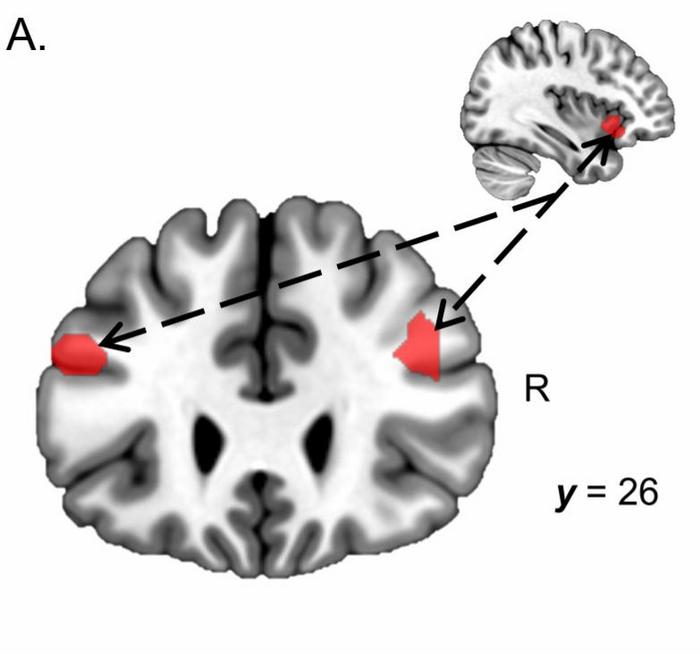In a groundbreaking study, researchers have illuminated the neural underpinnings of cognitive fatigue, a phenomenon that has profound implications for mental health disorders such as depression and post-traumatic stress disorder (PTSD). Leveraging advanced functional magnetic resonance imaging (fMRI), the scientists captured intricate details of brain activity in real-time as participants engaged in memory tasks that required significant cognitive effort. This research, funded by the National Institutes of Health, marks a significant step toward deciphering how the brain signals fatigue and how these signals impact mental functioning.
The study recruited 28 healthy adults, comprising a balanced group of 18 females and 10 males aged between 21 to 29. Each participant was compensated for their time, being informed that their performance during memory tasks could influence potential earnings. This design allowed researchers to intertwine elements of financial incentives with cognitive exertion, exploring how motivation affects brain activity. Through a series of challenging memory tests, participants were observed under fMRI scans, providing unprecedented insight into how their brains reacted to cognitive challenges and fatigue.
Participants performed tasks that involved recalling the position of letters displayed sequentially on a screen. As the number of letters increased, so did the difficulty of recalling specific positions, thereby increasing the cognitive load and consequently, the subjective experience of fatigue. Prior to and after these tasks, participants self-reported their levels of cognitive fatigue, offering a subjective lens through which to interpret the data collected from the fMRI imaging.
Across the memory tasks, researchers identified significant activation in two critical areas of the brain: the right insula and the dorsal lateral prefrontal cortex. The right insula, a region deeply seated within the brain, is commonly associated with various aspects of emotional and physical sensations, including feelings of fatigue. The dorsal lateral prefrontal cortex, sprawling across both hemispheres, plays a pivotal role in higher cognitive functions such as working memory and decision-making processes. The enhanced connectivity and increased activity in these areas during reports of cognitive fatigue indicated a complex relationship between mental exertion and fatigue.
The results demonstrated that this heightened activity was more than double the baseline levels recorded before the tasks began, suggesting that cognitive fatigue operates through established networks within the brain. This discovery brings us one step closer to comprehending the intricate mechanisms of fatigue, which has long been a topic of intrigue within neuroscientific literature. The research posits that cognitive fatigue is not merely a passive experience, but rather an active brain state requiring substantial neural resources and energy.
Dr. Vikram Chib, an associate professor of biomedical engineering at Johns Hopkins University and a leading figure in this study, emphasizes that understanding the biology underlying cognitive tasks is alarmingly less explored compared to that of physical tasks. This gap in research stands in contrast to the well-documented understanding of musculature fatigue during physical exertion, marking a pivotal area for further investigation within cognitive neuroscience.
The outcomes of this research have far-reaching applications in the realm of mental health, particularly for individuals grappling with conditions like depression and PTSD. Recognizing the neural circuits involved in cognitive effort not only enhances our understanding but also lays the groundwork for developing therapeutic interventions. As cognitive fatigue is frequently experienced in these conditions, understanding its neural basis may guide innovative treatment approaches, including medication or cognitive behavioral therapy.
Interestingly, the research uncovered that external financial incentives played a pivotal role in motivating participants to exert cognitive effort. The interplay between motivation and fatigue is evident, suggesting that while cognitive fatigue can hinder performance, appropriately structured incentives might offset the aversive effects of fatigue. This insight is crucial, especially in therapeutic settings where motivation might fluctuate, impacting cognitive performance and overall mental well-being.
Furthermore, while the fMRI methodology brings to light broad neural activity, the study cautions that this imaging technique captures gross patterns of brain function rather than finely-tuned neuronal activities. Therefore, it is essential to interpret the results within the context of real-world cognitive scenarios to ascertain their applicability beyond laboratory environments. Future research should aim to translate these findings into everyday tasks, providing a more comprehensive understanding of how cognitive effort and fatigue manifest in daily life.
To investigate the neural correlates of cognitive fatigue further, future studies may explore diverse cognitive tasks and their effects on brain function. The nuances of cognitive fatigue can differ significantly depending on the task complexity and individual variability, necessitating a multifaceted research approach. This study, however, serves as a foundational pillar from which future explorations into cognitive effort and fatigue can be launched.
As the scientists move forward in their research endeavors, their focus will be to identify how cognitive fatigue is realized in individuals suffering from mental health disorders. A deeper understanding of these brain pathways may unlock new avenues for targeted treatments aimed explicitly at alleviating cognitive fatigue associated with emotional and psychological distress.
In conclusion, this pioneering study not only sheds light on the neural mechanisms of cognitive fatigue but also emphasizes the critical need for further inquiries into mental exertion and motivation. Understanding the brain’s relational dynamics between fatigue and cognitive function will undoubtedly pave the way for innovative treatment strategies, marking a significant advancement in cognitive neuroscience and mental health research.
Subject of Research: Brain activity and cognitive fatigue
Article Title: Unraveling the Neural Mechanisms of Cognitive Fatigue
News Publication Date: June 11, 2025
Web References: Journal of Neuroscience
References: NIH grant numbers R01HD097619, R01MH119086
Image Credits: Vikram Chib, Johns Hopkins Medicine and Kennedy Krieger Institute
Keywords
Cognitive fatigue, fMRI, brain connectivity, mental health, depression, PTSD, cognitive neuroscience, neural mechanisms.




